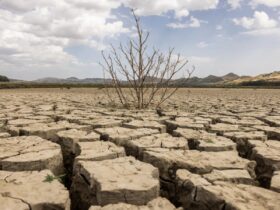In light of the increasingly worrying data, the UN invites us to reflect, during the Sustainable Gastronomy Day, on the impact of our daily food choices in environmental, but also social and economic terms.
How many times have you heard the saying “an apple a day keeps the doctor away”? Surely too many. In fact, the numerous beneficial properties of the food for human health are unquestionable: have you ever thought, however, how much it can affect that of our planet?
According to the data collected by the association Water Footprink Network, 125 liters of water are needed to produce and distribute an apple weighing 150 grams. The water cost, on the other hand, increases with the increase in the industrial transformation processes of the raw material: in fact, more than a thousand liters of water are needed to make a liter of bottled fruit juice.
For the sake of Terra we must no longer just “cry over spilled water”, but we must act: educating the citizen to the conscious choice of food is only one of the key concepts Sustainable Gastronomy Day, fixed on June 18 give her United Nations. Let’s analyze the others.
Sustainable Gastronomy Day: watch out for food waste!
Have you ever bought more food than you need, why on offer? After reading the results of the last Food Waste Index Report 2021, you can only feel guilty. From the data collected byUNEP (United Nation Environment), in fact, it is clear that in 2019 the equivalent of 23 million trucks full of food was thrown into the garbage of our homes, that is 17% of what is available.
These troubling results were also confirmed by a research by theEthz (Federal Polytechnic of Zurich), in which it was underlined how this phenomenon is surprisingly more widespread in domestic environments (in which about 52% of waste episodes occur). Less strong, in fact, are the percentages linked to the industrial environments of transformation (27%), agri-food production (13%) and, finally, commercial (8%).
Reading these numbers on the occasion of the Sustainable Gastronomy Day, we cannot fail to reiterate how important it is to assume correct behavior individually, not demonizing the industrial field a priori.

Intensive agriculture: a double-edged sword
In the last century, the demand for food has increased and with it, the need to make the most of every single hectare available. Recent studies have shown that nearly a third of our planet’s arable land has disappeared in the past 40 years, and it will take centuries for them to become productive again.
As evidenced by Duncan Cameron, biologist ofUniversity of Sheffield, the speed with which the soil is “consumed” (erosion rate) it is much higher than that of training (training rate). Furthermore, the heavy use of polluting fertilizers is only worsening the situation.
According to the researcher, the only possible solution would be to use biotechnologies to restore the relationship between soil and microbes: this is the only way to reduce the use of fertilizers.
“Think globally, eat locally”: the goal of the Sustainable Gastronomy Day
One of the objectives of the Sustainable Gastronomy Day it is putting “local farmers” in the limelight. By re-evaluating the importance of “zero kilometer” products, the survival of the latter can be ensured, continually threatened by the most convenient industrial production.
According to theHIM-HER-IT, sustainability cannot ignore the social and economic aspect. Choosing quality products does not only mean making sure you reduce the environmental impact of your pantry, but also evaluating its origin and production ethics at 360 °.
What can you do to stem these issues? You have to change your habits
On the occasion of the Sustainable Gastronomy Day, the United Nations have drawn up a list of behaviors to be adopted to try to stem the damage collected.
Among the main suggestions, those of:
To date, only a collective awareness can radically change the fate of our planet. As stated by Greta Thunberg: “We have to change now, because tomorrow may already be late”.















Leave a Reply
View Comments